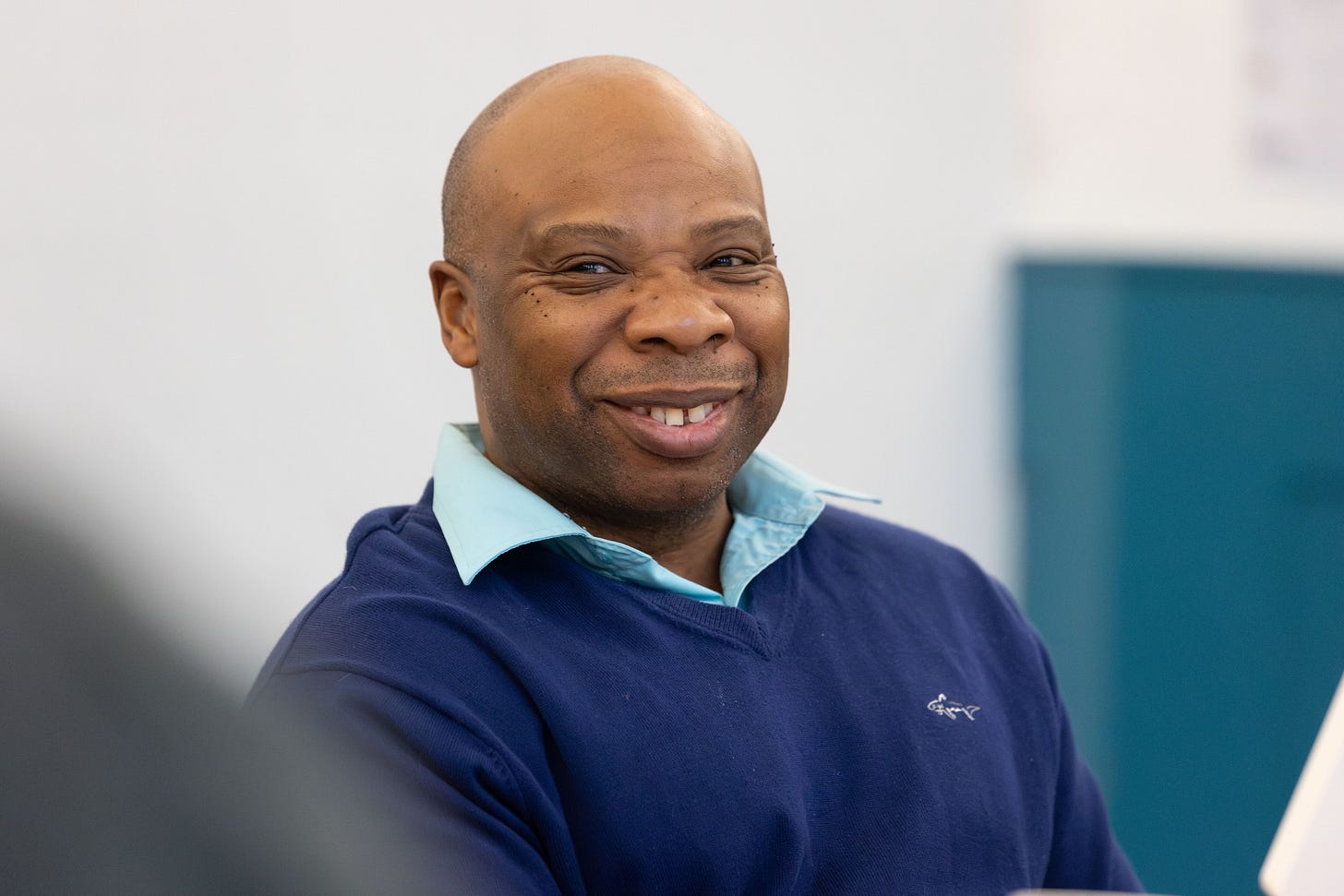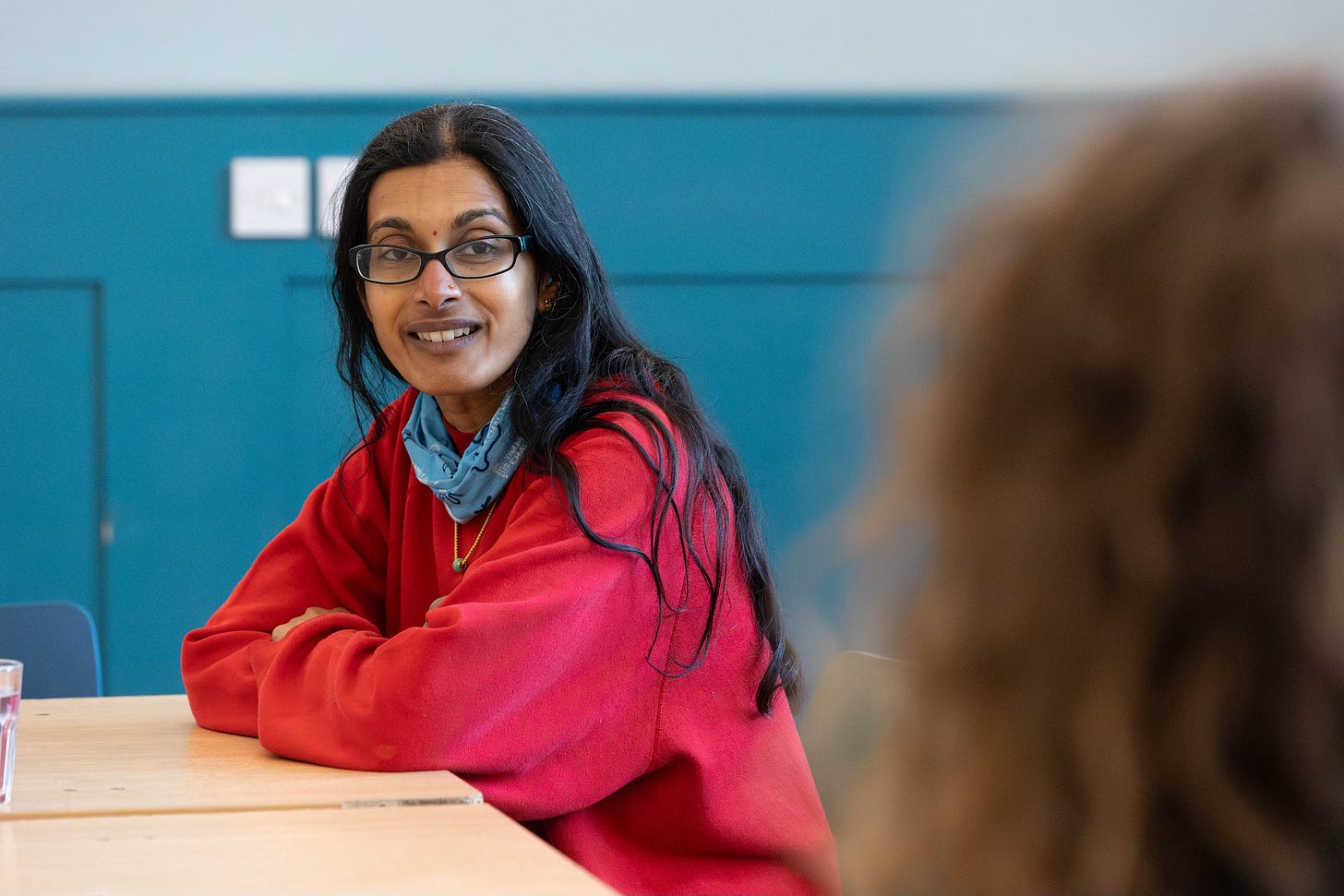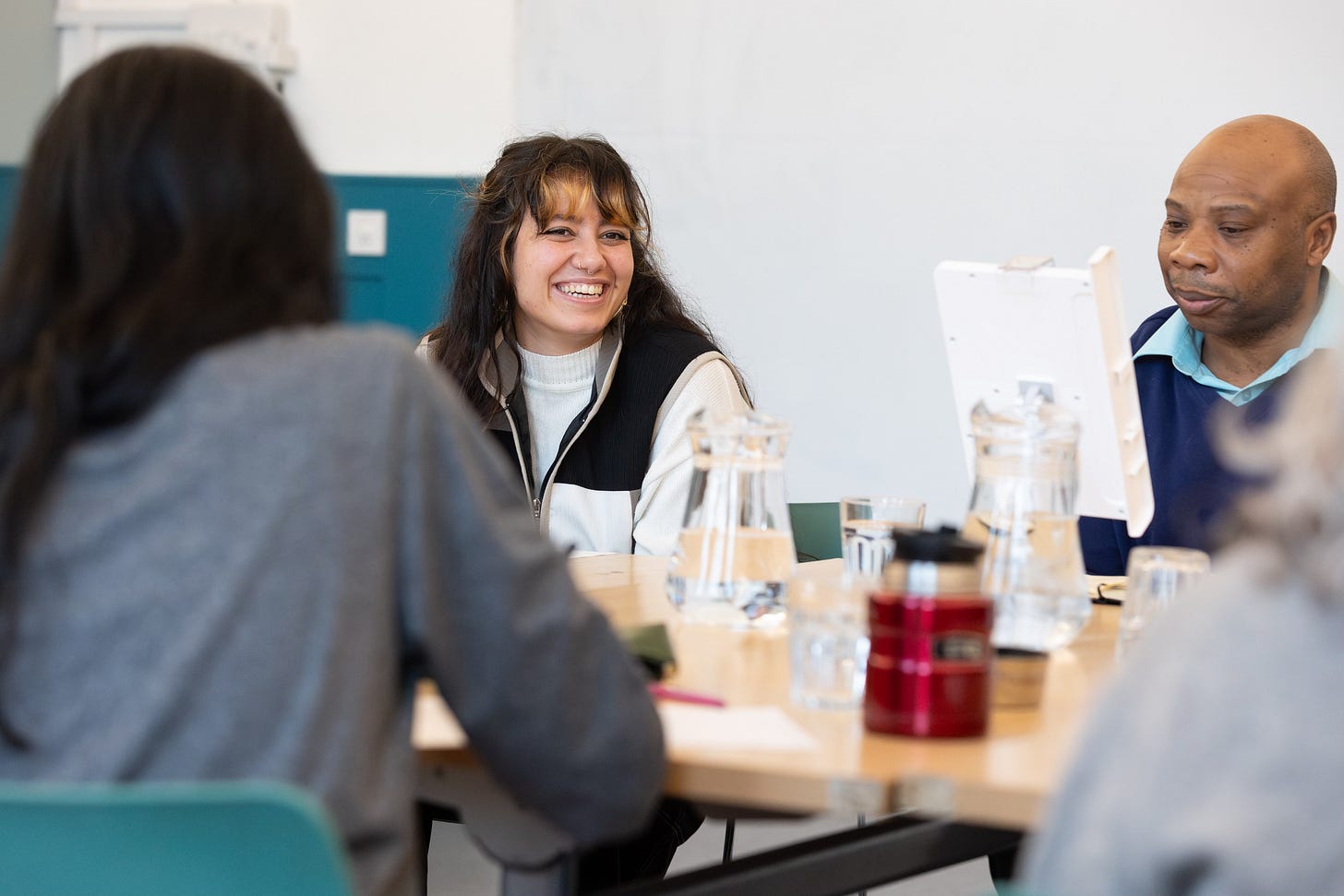"Our shared interest is in the imagination" - Our Reading Round group in Bristol
We interview Dr Edson Burton about the Reading Round group he's running
“The simplicity of it is key,” says Dr Edson Burton, writer, historian, playwright and tutor, who is running a RLF Reading Round group in Bristol. As our Head of Outreach, Katharine McMahon, explained in our previous post on the launch of our Reading Round groups, they are
“where a group of people gather round a table with a professional writer, and the writer brings a short story and a poem and shares them with the group by reading them aloud and then encouraging conversation about the writing.”
Reading Round is free, and the group meets every week for a couple of hours for thirty weeks.
“It’s hard to communicate the power of that simplicity,” Edson continues. “It sounds so indulgent and middle-class, sitting in a group, reading stories. But I don’t think it is.”
Edson chooses two pieces of work each week, usually by writers who identify as having different genders, from diverse ethnic backgrounds and who have different writing styles. He prints out a copy of the work for members but also reads the work out loud. The group then talk about the piece of writing they’ve listened to.
He says, “I think the most telling strength of Reading Round has been the members who’ve said I’d never have bothered with the story, or I’d have given up on the first page. It’s through discussion that every week everyone has come away quite startled with how much more they’ve excavated by spending time to unpick the density in the short story form.”
Participant, Joe Hill, agrees; “The work selected has been really interesting. It’s not stuff I’d have come across otherwise or usually read. It’s been a lot more profound than I was anticipating, and the space is not as academic and doesn’t require academic knowledge about literature or writing techniques. I don’t write and I don’t have that sort of knowledge so I wasn’t sure it was for me, but I’ve found it really accessible and nicely facilitated.”
Edson gives the example of a seemingly simplistic story the group read in the first couple of weeks, called The Strong Man by Helen Simpson. An unnamed woman is having her fridge repaired by a man of Russian origin.
“The Strong Man seemed to be about the man who came round to fix the fridge of the woman who was telling the story...”
“Get my knee fixed then get the fridge-freezer fixed, that was the plan.”
The Strong Man by Helen Simpson
“…but by the end we realised it was about a complex Stockholm syndrome relationship one can have with toxic masculinity and our sympathies were completely played and moved around,” Edson says.
The truth is. The truth is, no one would believe you back then. “A bit heavy-handed” was how it was described if you had to visit A&E. Nothing happened when you told a teacher. The police had a good laugh. “Making a fuss about nothing,” was what they used to say; or, if it showed, “Making a fuss.”
The Strong Man by Helen Simpson (in Cockfosters, 2015, Jonathan Cape)
Reading in a group like this, where no one has read the story in advance and everyone’s opinion is valid, “Opens your eyes to a sense of sensitivity to the world and to meanings that are not on the surface,” says Edson.
Another participant, Iman Sultan West, comments on how open to interpretation the work often is and, in particular, a poem that captivated her called Greenery by Judy Brown. They say, “It was such an out-of-the-box poem. Greenery, in particular, challenged everything I know about metaphor.”
I moved to the city that no longer exists it was September. The air was brown fur growing thick round the candy cane buildings that poked through cloud and were lost.
Greenery by Judy Brown (in Lairs, 2022, Seren Books)
One favourite was My Daughter, The Fox by Jackie Kay, which seems to be a magical realism story about a woman who gives birth to a fox, but in reality is a razor-sharp comment on the universal themes of motherhood, mother-daughter relationships and societal judgements towards neurodiversity.
We had a night of it, my daughter and I, with the foxes screaming outside. I had to stroke her fur and hold her close all night. She snuggled up, her wet nose against my neck. Every time they howled, she’d startle and raise her ears. I could feel the pulse of her heart beat on my chest, strong and fast.
My Daughter, The Fox by Jackie Kay (in Wish I was Here, 2011, Pan Macmillan)
“We realise that lives that look different, aren’t so different; our shared interest is in the imagination.” Dr Edson Burton
The perception of book clubs and reading groups is often that they are composed of the middle-aged and the middle-class, but Iman says, “It’s such a varied group of different ages, different ethnicities, different genders, and this creates a space where I’m open to hearing everyone else’s view, and then when I hear their perspective, I’m like, I would never have thought of that before. It’s humbling, eye opening.”
Edson agrees: “We have a sense of sitting with very different lives and it’s fascinating and quite beautiful to see how we come together in a space, and give each other space and listen, and out of that, we realise that lives that look different, aren’t so different; our shared interest is in the imagination.”
It seems powerful and yet counter-intuitive, that sitting and listening to a writer’s words can bring about such cohesion within a group who are sharing diverse opinions. One reason why this happens could be because writing, unlike, say a movie, is inherently unfinished, as Mark Haddon, author of The Curious Incident of the Dog in the Night-time, comments in Stop What You’re Doing and Read This: “A novel really is just inky shapes on paper. It comes to life only when we read it. And we all read differently.”
“Sitting in a room with people talking about something you’ve just read and being able to share that experience is beautiful.” Iman Sultan West
Shared reading, in particular, can help create quite profound changes and connections between people, as Dr Jane Davis, the Founder and Director of The Reader1, explains in Stop What You’re Doing and Read This, “What people instinctively know is that what makes people happy, above all, is a network of supportive fellow creatures, a sense of purpose, challenge and meaningful occupation. Shared reading can provide all this.”
Joe comments, “The stories [we’ve read] have helped me connect more emotionally. As a group we explore some pretty deep things together, and doing that by focusing on a creative activity, brings out a tenderness in people that might be difficult to express otherwise.”
The group has now been meeting for several weeks and some of the participants are thinking of trying to continue with a form of Reading Round in the long term.
Iman says, “Reading Round calms me down; it’s the one relaxing thing I do that brings me peace. Sitting in a room with people talking about something you’ve just read, really picking it apart and being able to share that experience is so beautiful. It’s been a godsend.”
The Reader is a charity that organises read-aloud groups to reach people who would not otherwise read; the RLF’s Reading Round groups differ as they are led by a professional writer who chooses the texts and can share insights with the group about the story or poem they are discussing.









